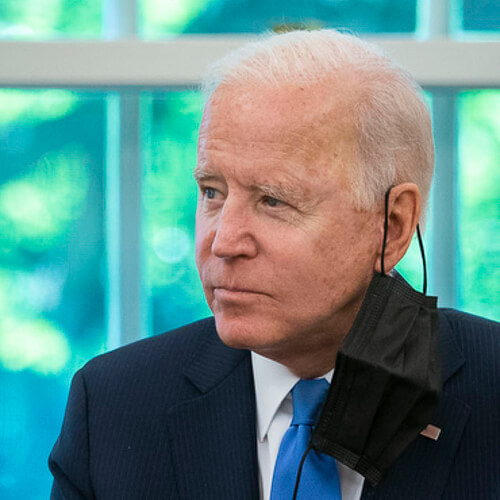The White House is gathering leaders from Intel, Apple, Microsoft, TSMC, Samsung and carmakers for a virtual summit today about the chip shortage.

Intel's CEO Pat Gelsinger will attend a virtual White House chips summit today, together with representatives from Apple, Microsoft, Samsung, TSMC, GM, BMW and Ford.
The secretary of commerce, Gina Raimondo, will host the meeting together with National Economic Council director Brian Deese, with the discussion focusing on the impact of the Delta coronavirus variant on semiconductor supply chains, and how better to coordinate between silicon producers and consumers.
As part of the meeting, the Biden administration officials will ask companies to voluntarily share information about their supply chain bottlenecks, and identify ways in which the government can help to ease bottlenecks.
Figure 1:  Chips away: The Biden administration will ask companies to voluntarily share information about their supply chain bottlenecks.
Chips away: The Biden administration will ask companies to voluntarily share information about their supply chain bottlenecks.
(Source: White House)
As semiconductors come in short supply globally, and coronavirus outbreaks have most recently closed fabs in Malaysia, carmakers have accelerated production cuts beginning earlier this year.
GM has halted production this month in several of its factories in North America, and Toyota announced it will cut its September production by 40%. Today's chip summit follows a number in recent months by President Biden and his top staff, as they attempt to signal they are paying sufficient attention to the issue.
Biden held an April meeting with high-level executives from affected companies, while in May Raimondo held meetings with three dozen industry leaders about the shortage, she said. And in early June, Biden held up a silicon wafer at the White House and declared "This is infrastructure."
Queues at the chipper
The silicon shortage has fed into the heated politics of US-China trade relations, especially in tech. Especially as next year's midterm elections draw nearer for a Congress which is only in Democratic hands by the slimmest of majorities.
A personal telephone call between Biden and China's President Xi Jinping did not pour noticeable cold water on the issue. In recent days, Biden nominees for key trade-policy positions at the Commerce Department have pledged to prevent transfer of sensitive technologies to China. "I wouldn't hesitate to impose unilateral controls, if necessary, to keep the United States's technology out of the hands of human-rights abusers," said Thea Kendler, Biden's nominee as assistant secretary of commerce for export administration.
Kendler, who is a prosecutor, has also worked on the US extradition case against Huawei executive Meng Wanzhou, who has been detained in Canada since 2018. Meanwhile, Alan Estevez, nominated to oversee export controls on the US Entity List as undersecretary in charge of the Bureau of Industry and Security, said he would work to deter "malign behavior on a number of fronts" on the part of China. He thus pledged to strengthen controls and improve the resilience of the US semiconductor supply chain. "I see no reason that Huawei would come off the entity list, unless things change," said Estevez in confirmation hearings.
Fab news
With 29 fabs now coming online in the next two to three years, some, like Global Semiconductor Alliance CEO Jodi Shelton, have wondered whether an oversupply of chips could even send prices downward. For every government to now want its own national chip ecosystem "is not efficient and doesn't work," she told a panel discussion last week.
Want to know more about AI and automation? Check out our dedicated AI and automation channel here on
Light Reading.
"The reason there are not more foundries is it's a very hard job," she explained, saying "there's a reason TSMC is leading."
Meanwhile, speaking at the same panel, ASE chief executive Tien Wu predicted reasonable equilibrium between supply and demand in the world semiconductor market wouldn't arrive until 2023, or possibly even 2024.
Related posts:
— Pádraig Belton, contributing editor special to Light Reading
About the Author(s)
You May Also Like











